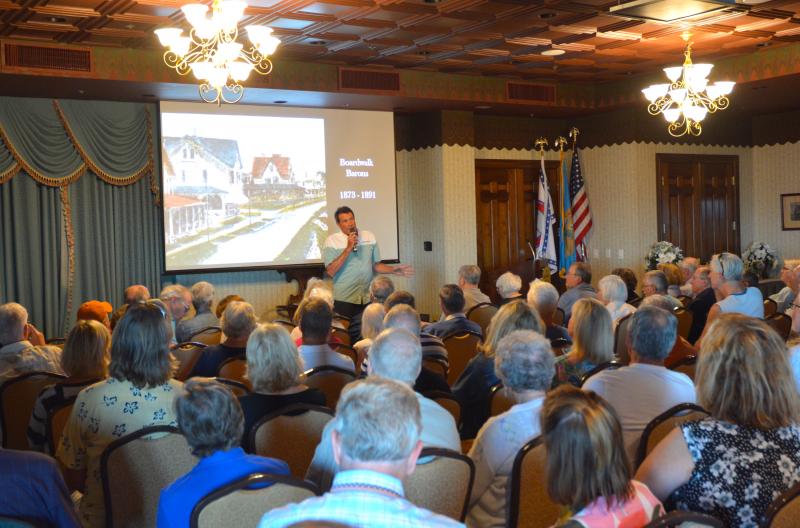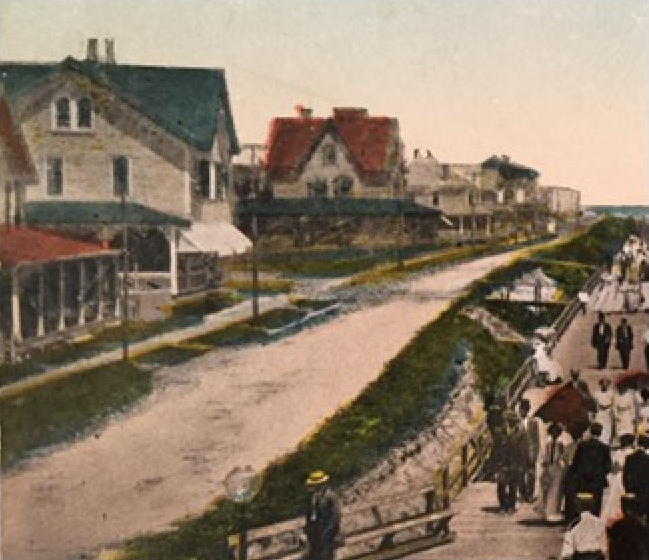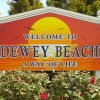Rehoboth Beach may have been founded as a United Methodist camp meeting association in the early 1870s, but Rehoboth Beach historian Paul Lovett said it didn’t take long for the fledgling community to embrace a different lifestyle. Much of that was because it attracted a number of rich individuals from the nearby cities, who in turn attracted non-religious people seeking a good time by the beach.
Addressing a sold-out crowd June 9 at the Boardwalk Plaza Hotel, Lovett said he was inspired to dig a little deeper into the earliest history of the city after reading oral histories of longtime residents at the Rehoboth Beach Museum. There’s at least 100, and he’s read each at least twice, he said.
Lovett said many of those oral histories tell a story of a quiet beach town where most of the visitors were from the outer reaches of Sussex County. Then he found a bunch of old photos of Rehoboth Beach from around the 1900s, and he said something was wrong.
“Those people don’t look like they’re from Dagsboro to me,” said Lovett, standing in front of a photo full of people dressed in their Sunday best.
Prior to 1873, Rehoboth Beach was farmland. That changed when the Rev. Robert W. Todd of Wilmington purchased the land to make it a camp meeting association. Soon after that, said Lovett, lot selection day was conducted, a 1,000-foot-long boardwalk was built and the first association meeting was held.
Many people from Wilmington and Philadelphia took the train to Lewes, then finished their trip by carriage, said Lovett. They came down because they wanted to see what was going on, he said.
Lovett discussed a number of the people who purchased some of the earliest available lots.
“The definition of a baron, to me, is a person who is filthy rich and can build a house at the beach,” said Lovett.
There was Jethro J. McCullough, who was credited with inventing galvanized steel, said Lovett. There was James E. Hooper, a Baltimore tycoon who made duck cloth, he said.
William Bright made his money in Wilmington real estate. He opened the Bright House Hotel and it was considered edgy because there was nightly dancing, an orchestra and billiards, said Lovett.
There are multiple columns in the local newspaper that are against what Bright was doing at that hotel, said Lovett, adding the hotel was located where Funland is today.
When the town was first laid out, the area of Kent and Sussex streets had religious names. In a sign of a quickly changing attitude, by 1876, those names were dropped in favor of what they are today, said Lovett. By 1878, there was a railroad to the camp meeting grounds, but by 1879, the camp meeting portion of the name was dropped, he said.
“This is a group of folks who oversaw the railroad era of Rehoboth Beach and they did a lot,” said Lovett.
This was the fourth and final lecture conducted by Lovett, who is putting the funds raised by the series back into the diorama he’s created of downtown Rehoboth Beach in the 1910s. The other three lectures were on Lorenzo Dow Martin, Kitty Cole and Commodore William H. Schock.
Lovett’s diorama is available for viewing at the Rehoboth Beach Main Street office, 509 Rehoboth Ave. For more information, email Lovett at info@pdlovett.com.
Chris Flood has been working for the Cape Gazette since early 2014. He currently covers Rehoboth Beach and Henlopen Acres, but has also covered Dewey Beach and the state government. He covers environmental stories, business stories and random stories on subjects he finds interesting, and he also writes a column called Choppin’ Wood that runs every other week. He’s a graduate of the University of Maine and the Landing School of Boat Building & Design.















.jpg)









































